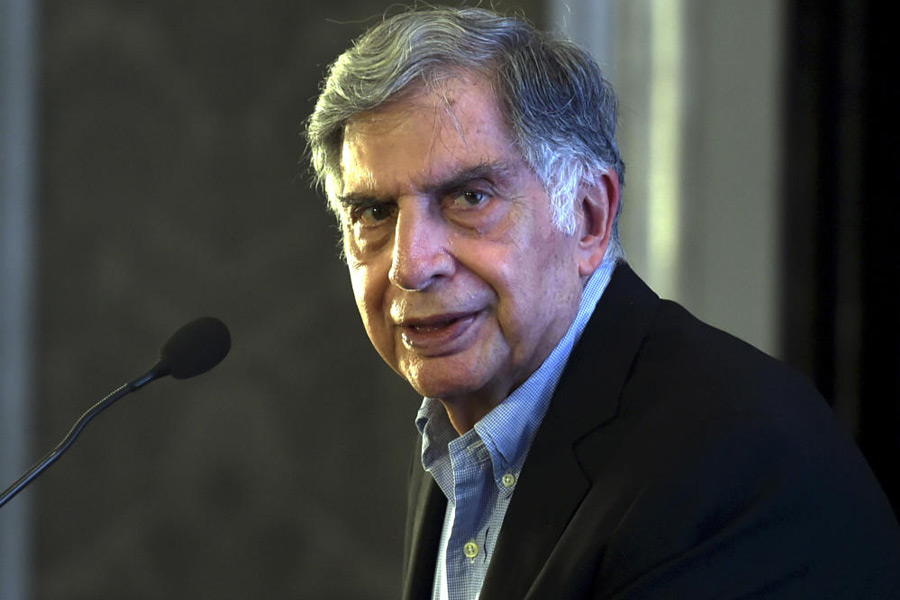As we mourn Ratan Tata’s demise, but equally celebrate his life and achievements, I am reminded of a conversation we had back in early 2011.
Those days I was editor, Fortune India, and Tata was our Business Person of the Decade (Fortune India; February 2011). My then colleague Pavan Lall was anchoring the article and had already met scores of people by way of research. The ‘RNT interview’ was the centrepiece of his research and when it finally happened, I tagged along.
I had had the privilege of interacting with him a few times earlier in my career and Tata was remarkably candid in our conversation which lasted over a couple days.
In my mind, the timing of the interview was significant. By then he had been chairman Tata Sons for over two decades, and indeed, would be stepping down in favour of Cyrus Mistry very soon. All the big moves that defined his career (the early consolidation of the group; the big, global acquisitions; the car projects; etc.) had already happened.
He had become the legend we will remember him as and thus he had no reason to say what he said. He could well have positioned himself as this all-knowing leader, but he didn’t. Instead, he often paused to introspect and answered the questions with remarkable humility and candour, almost as if making sure that he was being truthful to himself.
And while much will be written by many on how they saw him, in many ways, this conversation gave a peek into how he saw himself. And for that reason the conversation has stayed on in my mind. It demonstrates what leadership should really look like. Because great leaders don’t need pretence.
He spoke of a study he did comparing India and China, because he wanted to know what made them so competitive, and how that study was one of his biggest learnings ever. The one thing that hit home was the willingness of the Chinese to do things on a grand scale, even if that appeared foolhardy at first.
“This led me to change not just my mindset but that of the whole group [which was] to do things in small increments,” he said. Adding: “Somewhere in that I learnt to be big and bold and not just succumb to the safest thing to do.”
I was curious to know how he had evolved as a manager, his personal journey of sorts and asked him that. He spoke about the role luck and confidence play in how managers evolve only to add, with endearing honesty that, “I’ll never be J.R.D. [Tata].”
It appears that as young executives it was often frustrating to discuss anything with JRD because regardless of how well prepared one was, JRD always found some flaw. That always left Tata wondering, how the hell he did that.
“I’d never be able to do that to the extent he did, but I’m on the same journey, where you find people asking me the same question: ‘How did you do this?’”
To a question on innovation, he spoke of himself as a sort of “idiot inventor” who was always trying to find solutions. One reason for that was he was left-handed and, in a world built for right-handed people, “You ask why you can’t do it another way.”
He spoke of how he got into a bidding war for Corus because he felt that India must win against Brazil; how he was anxious on the day of the Nano launch, fearing that the car wouldn’t start and he would drive it off the stage and not park it on the turntable; and how he was still hoping to get Nano manufactured by many small entrepreneurs running low-cost assemblies even though the view internally was that it couldn’t be done.
Here he was talking about his need to still carry others, what drove him beyond business and the small fears of a big man.
And finally to a question on how he would like to be remembered, he said he’d once asked Forbes to remove him from its rich list because they were attributing the value of his companies to him, only to add: “Power and wealth are not two of my main stakes.”
We found that emotion to be so powerful that we put that line on the cover of Fortune India.
Over the past few days, when I see the outpouring of grief at Tata’s death, the lines of ordinary people queueing up to pay their last respects like they would at the demise of a much-loved family elder, I wonder what it was about him that touched so many lives.
And I go back to my thoughts at the end of that interaction.
I came away feeling that this was a man much like the rest of us — comparing ourselves to those who came before us and not necessarily coming on top; beset by petty, almost illogical anxieties on a big day; feeling that the world often conspires against us and seeking answers wherever we may find them.
Ratan Tata was undoubtedly the powerful head of a vast conglomerate; but, he was also, at once, Everyman! And in some magical, mystical way, the world saw that.
D.N. Mukerjea was founding editor, Fortune India.










